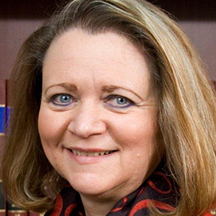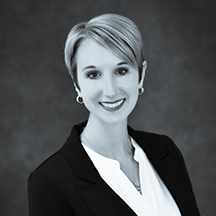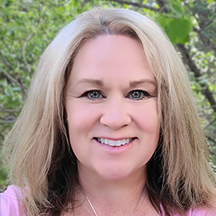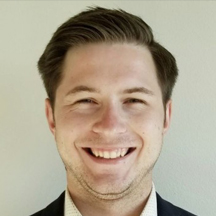New to Public Health-Cohort 2: Session 2-Accountability & Performance Management
OVERVIEW
The New to Public Health Residency Program is an innovative development program designed to build confidence and competency for professionals who are new to public health.
The program is built upon the Foundational Public Health Services Model and develops enhanced knowledge and skills within the foundational areas and capabilities that are essential to public health practice.
The residency program includes an evidence-based practice project, peer networking, mentoring, facilitated reflection and journaling, simulation, and case studies to support the new resident as they transition to practice; while inspiring collaborative, interdisciplinary relationships to promote and protect health at a population level.
STATEMENT OF NEED AND PURPOSE
The residency program is designed to provide new public health professionals the foundational capabilities that are essential to public health practice. Overarching residency curriculum focuses on leadership, professional development, role-specific formation and competency. A residency program bridges the workforce by integrating the knowledge of experienced public health professionals and the fresh ideas of new staff to positively affect population health.
Integration of public health professionals from across jurisdictions allows the new public health professional to understand how diversity in the workforce strengthens essential services across city and county lines, and allows for enhanced networking and future collaboration.
Residency programs supplement state and local orientation programs and build upon department-specific policy, procedures, and tasks, to allow the resident to see a fuller picture of the field of public health.
This contemporary program utilizes a comprehensive practice model that supplements existing knowledge of staff and supports the synthesis of new ideas. The program promotes standardized tools for the participant to customize based on their individual practice.
TARGET AUDIENCE
This residency program is designed to meet the needs of nurses, social workers, sanitarians, health educators, and other public health professionals that are new to their roles.
ELEMENTS OF COMPETENCE
This continuing education (CE) activity is designed to improve learner competence, and focuses on the American Board of Medical Specialties’ areas of interpersonal communication skills, professionalism and systems-based practice, the Institute of Medicine area of employing evidence-based practice, applying quality improvement, and utilizing information, and the Interprofessional and Nursing areas of values/ethics, roles/responsibilities and interprofessional communication.
GLOBAL LEARNING OBJECTIVES
By the end of the residency program, the new public health professional as a member of the interprofessional team will:
- Apply learned concepts from the Foundational Public Health Services’ model to their public health professional practice.
- Increase knowledge, skills, and confidence for competent public health practice.
- Access tools and resources applicable to public health practice.
- Apply health equity and social justice concepts to public health practice.
- Demonstrate enhanced cultural competency knowledge and skills in their individual practice.
- Research, plan, and present a quality improvement or evidence-based practice project within their local health department or community.
SESSION LEARNING OBJECTIVES
Upon completion of this session, the learner as a member of the interprofessional healthcare team will:
- Recognize how public health performs according to accepted business standards and is held accountable in accordance with applicable federal, state, and local laws and policies
- Define how public health departments assure compliance with national and Public Health Accreditation Board standards
- Detail how organizational objectives are achieved and monitored through a performance management system
- Apply evidence-based and/or promising practices when implementing new or revised processes, programs, and/or interventions at the organizational level
- Identify nationally recognized framework quality improvement tools and methods and explain how they contribute to and maintain an organization-wide culture of quality improvement
- Describe how to establish a budgeting, auditing, billing, financial system, chart of expense and revenue accounts in compliance with federal, state, and local standards and processes
- Articulate how to secure grants or other funding (governmental and not) and how public health departments demonstrate compliance with an audit required for the sources of funding utilized
It will take approximately 9 hours to complete this session (enduring and synchronous content).
SUCCESSFUL COMPLETION
Residents will view lectures, panel discussions, participate in cased-based and small-group discussions, participation in simulation and skill-based training, and participate in simulation, skill-based training, and gaming activities over a 12 month period of time.
The residency program also includes an evidence-based practice project, peer networking, mentoring, facilitated reflection, journaling to support the new resident as they transition to practice while inspiring collaborative, interdisciplinary relationships to promote and protect health at a population level.
SESSION SECTIONS |
|---|
| Session 2: Pre-Test |
| Overview of Accountability and Performance Management |
| Scavenger Hunt |
| Quality Improvement Module |
| Quality Improvement - Discussion |
| Introduction to Evidence-Based Public Health |
| Models, Methods, and Tools |
| Programmatic Budgets and Funding |
| Program Planning and Evaluation |
| Public Health Accreditation |
| Case Study |
| Translating Evidence to Practice |
| Professional Development |
| Reflection |
| Synchronous Discussion |
| Quality Improvement Discussion Post Check In |
| Session 2: Post-Test |
| Session 2: Evaluation |
| References |
Content Authors
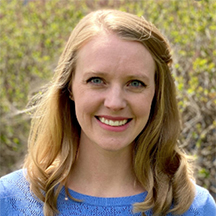 | Julianna ManskeNew to Public Health Residency Program FacilitatorJulianna Manske is the is facilitator and cofounder of the New to Public Health Residency Program and is employed with the University-Wisconsin Madison School of Nursing. Julianna spearheaded the workgroup in 2016 that developed and implemented the Southeastern Wisconsin Public Health Nurse Residency Program. This program, which ran from 2017-2020, served as a foundation to build the New to Public Health Residency Program, which supports public health professionals in their first year of employment at a local, regional, tribal, or state health department. Julianna serves as a co-chair on the Association of Public Health Nurses’ Education and Professional Development subcommittee. Julianna graduated from Concordia University in 2014 with a Master of Science in Nursing Education, and Carroll University in 2009 with a Bachelor of Science in Nursing. Julianna is passionate about workforce development and she is grateful to work with an incredible team developing the New to Public Health Residency Program and collaborating with public health leaders across the country. |
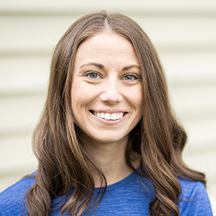 | Hannah HayesNew to Public Health Residency Program Facilitator and Project ManagerHannah Hayes is the New to Public Health project manager, facilitator, and co-developer of the New to Public Health Residency Program. In 2018 Hannah completed her Master of Public Health (MPH) at the University of Wisconsin-Madison. During this time, Hannah partnered with the Southeastern Wisconsin Public Health Nurse Residency Program, where she assisted in the co-development of a toolkit for the dissemination and implementation of the residency program, which served as the foundation for the New to Public Health Residency Program. Hannah is currently employed by the University of Wisconsin-Madison School of Nursing as the Project Manager of the New to Public Health Project. Hannah graduated with her Bachelor of Science in Nursing in 2016. Hannah has experience in family practice & forensics, postpartum, and public health nursing in addition to serving as a public health clinical instructor. Hannah is passionate about social justice, empowering new professionals, and advancing the public health profession. |
| Susan ZahnerAssociate Dean for Faculty Affairs and Vilas Distinguished Achievement Professor. Since joining the School of Nursing faculty in 2000, Dr. Zahner has focused on improving the performance of local public health systems to achieve population health improvement within communities. Recent studies have examined inter-organizational collaborative strategies in local public health and between primary care and public health organizations. Her research also includes public health nursing practice improvement; public health workforce development; and evaluation of continuing education approaches for public health professionals. Dr. Zahner initiated and co-leads the Wisconsin Public Health Research Network. This virtual organization links public health practitioners and public health researchers across the state to facilitate practice-relevant research. An affiliate faculty member with the UW School of Medicine and Public Health, she also serves on the MPH Steering Committee and the Executive Committee of the UW Population Health Institute. Dr. Zahner was Inducted into the American Academy of Nursing in 2013 and is an active member of the Expert Panel on Environmental and Public Health. Since 2014, Zahner has served as an Associate Dean with the School of Nursing, providing oversight for faculty affairs and serving on the executive leadership team.
|
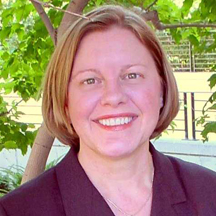 | Sandra PotthoffDr. Sandra Potthoff spent the majority of her nearly 30-year academic career at the University of Minnesota, where she served as the Director of the Master of Healthcare Administration Program for 8 years. She retired in 2019 from the University of South Florida, Tampa, where she served as the Chair of the Department of Health Policy and Management in the College of Public Health. Her teaching expertise includes analytics, operations management, quality improvement, problem-solving, healthcare information technology, health policy, program evaluation, patient flow, and long-term care. With a PhD in Industrial Engineering from the University of Wisconsin-Madison, Dr. Potthoff’s research spans the interfaces of systems analysis and quality management, operations research and management science, and data analytics, applied to evaluating and improving healthcare delivery, long-term care, tele-health homecare services, and community programs. She currently serves as a mentor and faculty member for Communities of Excellence 2026, a national collaborative of communities applying the Baldrige Framework of Performance Excellence to their community collaborative work. Dr. Potthoff was the recipient of the Association of University Programs in Health Administration (AUPHA) 2019 Gary L. Filerman award for Educational Leadership. |
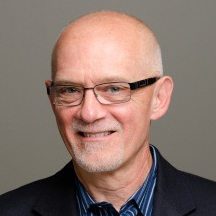 | Paul KuehnertPaul Kuehnert, DNP, RN, FNAP, FAAN, is a nurse and an executive leader in public health. Paul’s choice of nursing as a career grew directly out of his experiences in the anti-war and civil rights movements of the late 1960s and early1970s. It was shaped, at first, by his desire to be contrarian: to bend gender norms by being a man in a “woman’s” profession. Later, as he began practicing nursing, he found that it was not only a profession, but also a vocation. His commitment to nursing, particularly in public health, provided him with the means to act every day in concrete ways to further healing, build community, and seek justice. He has done so for the last 45 years in partnership with others in several urban, suburban, and rural communities on issues ranging from infant mortality and lead poisoning to HIV/AIDS. Paul recently published his first book, So Much Older Then. Coming of Age When the World is Coming Apart (Bookbaby, March 2021.) It is his memoir of coming of age in the late 1960’s and struggling to be true to his conscience as the war raged in Vietnam. He is the author of eight chapters in nursing, public health, and sociology textbooks, as well as more than two dozen commentaries and peer-reviewed articles. Paul is the president & chief executive officer of the Public Health Accreditation Board based in Alexandria, Virginia. He is a fellow in the National Academies of Practice (2013) and the American Academy of Nursing (2015.) He holds the Doctor of Nursing Practice and the Master of Science degrees, both from University of Illinois-Chicago, as well as the Bachelor of Science in Nursing from Webster University in St. Louis. He resides with his wife in Hallowell, Maine. |
| Jessica KronstadtJessica Kronstadt, MPP, is the Vice President for Program, Research and Evaluation at the Public Health Accreditation Board (PHAB). In that role, she oversees the administration and evaluation of the national accreditation program for state, local, tribal, territorial, and army health departments, as well as efforts to build the evidence base around accreditation requirements and public health practice. She is leading efforts to revise the PHAB Standards and Measures and process. This includes analyzing data on measure performance, participating in think tanks and expert panels, conducting environmental scans, and drafting revisions. She also engages in research and evaluation activities for the Public Health National Center for Innovations, a division of PHAB. Prior to coming to PHAB, she worked at NORC at the University of Chicago, conducting research on public health services and systems, as well as insurance benefit design, health information technology, and the rural health workforce. Previously, she worked for the Public Health Foundation, focusing on workforce issues. She has published numerous peer-reviewed articles and served as a guest editor for two special issues/supplements of the Journal of Public Health Management and Practice focused on accreditation. She received her Master of Public Policy from Georgetown University.
|
| Janalle GoosbyJanalle Goosby, MBA is the Communications and Public Affairs Specialist at PHAB. In this role, she develops, informs, and executes internal and external strategic communication plans and products. Prior to joining PHAB, Janalle held roles as a Communications Specialist at the Medical College of Wisconsin and the Health Communications Officer at the City of Milwaukee Health Department, managing internal, external and crisis communications. She holds a Master’s in Business Administration from Alverno College and an undergraduate degree in Life Sciences Communication from the University of Wisconsin-Madison
|
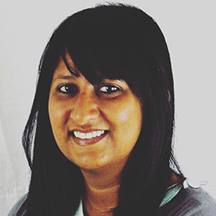 | Reena ChudgarReena Chudgar, MPH, is the Director of Innovation at the Public Health National Center for Innovations (PHNCI) at PHAB, where she leads planning and implementation of PHNCI’s portfolio of work. In her role she supports PHNCI’s initiatives around fostering innovation, multi-sector collaboration, public health modernization, and advancing equity. Prior to joining PHNCI, Reena served as Director for Performance Improvement at the National Association of County & City Health Officials (NACCHO). Her experience includes providing support to local health departments and their public health system partners in community health assessments and community health improvement plans, quality improvement/performance management, strategic planning, in advancing efforts around social and structural determinants of health, and in their efforts to prepare for national accreditation. She has more than 15 years of experience in public health. Reena received a Master of Public Health degree and a bachelor’s degree in chemistry from Emory University.
|
| Shirley OrrShirley Orr, MHS, APRN, NEA-BC, serves as Senior Education Specialist for PHAB, responsible for identification, development and delivery of educational products and offerings to support health departments’ efforts to advance their public health practice and pursuit of PHAB accreditation. Shirley’s public health experience spans over 25 years in leadership roles for local and state health departments in Kansas, along with 10 years of consulting experience, focused on public health systems improvement, public health workforce and leadership development, and organizational management. Shirley’s governmental public health agency work includes 20 years with the Kansas Department of Health and Environment, where she served as Local Public Health Director in the Bureau of Local and Rural Health Systems. In addition to her current work with PHAB, Shirley serves as a consulting director for the Association of Public Health Nurses (APHN), and is an adjunct faculty member for Wichita State University and the University of Kansas School of Medicine – Wichita. She holds active certifications as a Family Nurse Practitioner as well as Nurse Executive, Advanced Level. Shirley earned undergraduate and graduate degrees in nursing and health administration from Wichita State University and is currently a student in the PhD in Leadership and Change Program through Antioch University. |
| Juliann VanLiewJuliann received her Bachelor’s of Arts from Drake University and her Masters of Public Health from the University of Minnesota School of Public Health. Prior to working in local public health she implemented a number of community health programs for a large safety net health system in the Twin Cities, including rolling out a new CMS Hospice model and a new state model for Behavioral Health Homes. Juliann joined the Unified Government Public Health Department (UGPHD) in 2018 and within two years led the health department to becoming accredited through the Public Health Accreditation Board while working in the role of Planning and Operations Manager. Juliann became the Director for the UGPHD in May, 2020 and has led a robust response to COVID-19 from the early days of testing through the continued rollout of a massive vaccination effort. Juliann dreams of the day she is able to return to public health work beyond COVID-19. |
| Linda ConlonLinda Conlon, MPH, BAN, RN is the Health Officer/Director of the Oneida County Health Department. She has been in this position for 19 years and was previously a Public Health Nurse. As the Director of a nationally accredited local health department, she works to shape the community so that everyone has what they need for optimal health. Also, as past president and current active member of both the Wisconsin Association of Local Health Departments and Boards (WALHDAB) and the Wisconsin Public Health Association (WPHA), she works with other state, local, and community leaders and public health workers to build a solid foundation to support long-lasting good health for everyone who lives, learns, works, and plays in Wisconsin. Linda works closely with a variety of sectors to secure the conditions in our communities that promote health and wellness and improve the underlying social and economic factors that affect the health of everyone in the community. Internally, she has built a strong multi-disciplinary team and has led that team through initial Public Health Accreditation in 2015 and Re-accreditation in 2020. Linda has a strong interest in moving legislation forward that supports public health issues and is the current co-chair of the WPHA/WALHDAB Joint Public Affairs Committee. |
| Marita ChiltonMarita Chilton is the Director of Accreditation at the Public Health Accreditation Board (PHAB). She is responsible for managing the operations of the accreditation program. Prior to joining PHAB in 2011, Marita was a Project Coordinator at the National Association of Local Boards of Health. She holds a Master’s in Public Health from American Public University and a graduate certificate in Leadership and Management from the University of Notre Dame College of Business.
|
| Michael JaebMichael is a Doctor of Philosophy in Nursing student at the University of Wisconsin-Madison School of Nursing. Michael is building a program of research to improve health professional-patient communication to address shame and stigma encountered during health professional-patient interactions. The goal of this research is to develop and bolster trauma-informed communication tools and styles that support health professionals providing caring services for individuals, families, and communities experiencing shame and stigma. Michael serves as the co-chair of the Wisconsin Public Health Association Public Health Nursing section. He previously served on the Wisconsin Nurses Association Public Policy Council, COVID Response Work Plan Committee, and COVID Ethics subcommittee in which he advocated for the protection of the nursing workforce and correction of inequitable responses to public health crises. Michael also served at the Eau Claire City-County Health Department in implementing outreach efforts for WIC, NFP, and community action teams targeting mental health and healthy relationships. He led a food support program for individuals experiencing homelessness and food insecurity. Michael also has experience collaborating with Native American communities and UW-Eau Claire faculty to address poor outcomes related to pressure ulcers in older adults.
|
Acknowledgements
| Paula Bizot | Rebecca Phillips |
PLANNING COMMITTEE MEMBERS
| Hannah Hayes, MPH, RN University of Wisconsin-Madison, School of Nursing | Julianna Manske, MSN, RN, OCN University of Wisconsin-Madison, School of Nursing | Susan Zahner, DrPH, RN, FAAN University of Wisconsin-Madison, School of Nursing |
| Deborah Heim, PhD, MS, MN, BSN Public Health Nurse Consultant (PHNC) Wisconsin Division of Public Health Office of Policy and Practice Alignment (OPPA) for the SE region | Ajay Sethi, PhD, MHS UW-Madison School of Medicine and Public Health | Madeline Kornbeck Greendale Health Department |
CONTENT REVIEWERS
| Angela Acker University of Wisconsin-Madison, Populations Health Institute | Michael Jaeb University of Wisconsin-Madison, School of Public Health |
| Paula Bizot University of Wisconsin-Madison, School of Nursing | Abra Vigna University of Wisconsin-Madison, Populations Health Institute |
SYNCHRONOUS DISCUSSION FACILITATORS
| Hannah Hayes, MPH, RN | Julianna Manske, MSN, RN, OCN |
POLICY ON DISCLOSURE
It is the policy of the University of Wisconsin–Madison Interprofessional Continuing Education Partnership (ICEP) to identify, mitigate and disclose all relevant financial relationships with ineligible companies* held by the speakers/presenters, authors, planners, and other persons who may influence content of this accredited continuing education (CE). In addition, speakers, presenters and authors must disclose any planned discussion of unlabeled/unapproved uses of drugs or devices during their presentation.
For this accredited continuing education activity all relevant financial relationships have been mitigated and detailed disclosures are listed below.
*Ineligible companies are those whose primary business is producing, marketing, selling, re-selling, or distributing healthcare products used by or on, patients.
The ACCME does not consider providers of clinical services directly to patients to be ineligible companies.
The University of Wisconsin provides equal opportunities in employment and programming, including Title IX requirements. The University of Wisconsin fully complies with the legal requirements of the ADA and the rules and regulations thereof. If any participant in this educational activity is in need of accommodations, please contact [email protected].
Cohort-2 Disclosures
Accreditation Statement
 | In support of improving patient care, the University of Wisconsin–Madison ICEP is jointly accredited by the Accreditation Council for Continuing Medical Education (ACCME), the Accreditation Council for Pharmacy Education (ACPE), and the American Nurses Credentialing Center (ANCC) to provide continuing education for the healthcare team. |
Credit Designation Statements
American Nurses Credentialing Center (ANCC)
The University of Wisconsin–Madison ICEP designates this Other, Live and Internet Enduring Material activity for a maximum of 9 ANCC contact hours.
Continuing Education Units (CEUs)
The University of Wisconsin–Madison ICEP, as a member of the University Professional & Continuing Education Association (UPCEA), authorizes this program for .9 CEUs or 9 hours
Certified Health Education Specialists (CHES) and/or Master Certified Health Education Specialists (MCHES)
Sponsored by University of Wisconsin–Madison ICEP, a designated provider of continuing education contact hours (CECH) in health education by the National Commission for Health Education Credentialing, Inc. This program is designated for Certified Health Education Specialists (CHES) and/or Master Certified Health Education Specialists (MCHES) to receive up to 9 total Category I continuing education contact hours. Maximum advanced-level CECH available are 2. Continuing Competency credits available are 9.
Total contact hours: 9
Entry-level contact hours: 7
Advanced-level contact hours: 2
Available Credit
- 9.00 ANCC Contact Hours
- 9.00 CECH Approved Credits
- 9.00 Entry-level Continuing Competency credits
- 2.00 Advanced-level credits
- 7.00 Entry-level credits
- 9.00 University of Wisconsin–Madison Continuing Education Hours

 Facebook
Facebook X
X LinkedIn
LinkedIn Forward
Forward


